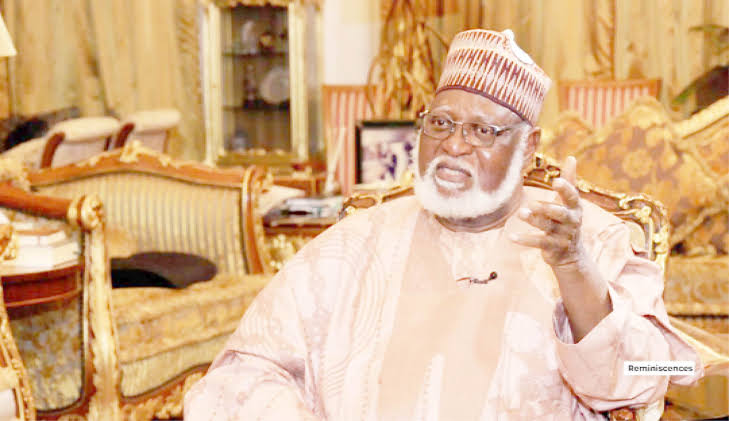The National Peace Committee (NPC), led by former Head of State General Abdulsalami Abubakar, disclosed on Friday that it faced significant pressure from political partisans and other elements during the 2023 Presidential Election to urge the Independent National Electoral Commission (INEC) to halt the collation of results or cancel the election altogether.
This revelation was made during the public presentation of the NPC’s 106-page report titled, “Nigeria’s Pursuit of Electoral Compliance: National Peace Committee NPC 2023 General Elections Report,” in Abuja. The committee detailed the challenges it faced as it sought to maintain peace during a highly contentious electoral process.
Prior to the public release of the report, the NPC met with INEC Chairman Prof. Mahmood Yakubu and other senior officials of the commission. The discussions centered on INEC’s preparations for upcoming governorship elections in Edo and Ondo states.
The NPC’s report highlights the intense pressure it received on election day, with multiple calls and petitions demanding the committee intervene in the electoral process. These demands included stopping the collation of election results due to alleged violations of the Electoral Act, and even calls to cancel the election entirely.
A significant issue raised by some petitioners was the failure of the then-presumptive president-elect to secure 25% of the votes in the Federal Capital Territory (FCT), a threshold they argued was crucial according to the Electoral Act. The Centre for Reform and Public Advocacy, for instance, criticized the NPC’s perceived silence in the face of these issues and called for the committee to make a formal post-election statement.
Despite the pressure, the NPC clarified that its role is limited to moral intervention. The committee stressed that it is not constitutionally empowered to interfere in INEC’s duties or arrest individuals who violate electoral laws. Instead, the NPC’s mandate focuses on promoting peace, preventing violence, and encouraging adherence to the rule of law.
The committee acknowledged that the lack of public awareness regarding its limited role has led to misunderstandings and skepticism about its significance. The NPC’s efforts, however, continue through engagement with various stakeholders, including political parties, youth and women’s groups, security agencies, traditional rulers, and religious leaders.
The report underlines the NPC’s commitment to moral persuasion and dialogue as tools to uphold peace and democratic principles in Nigeria.
